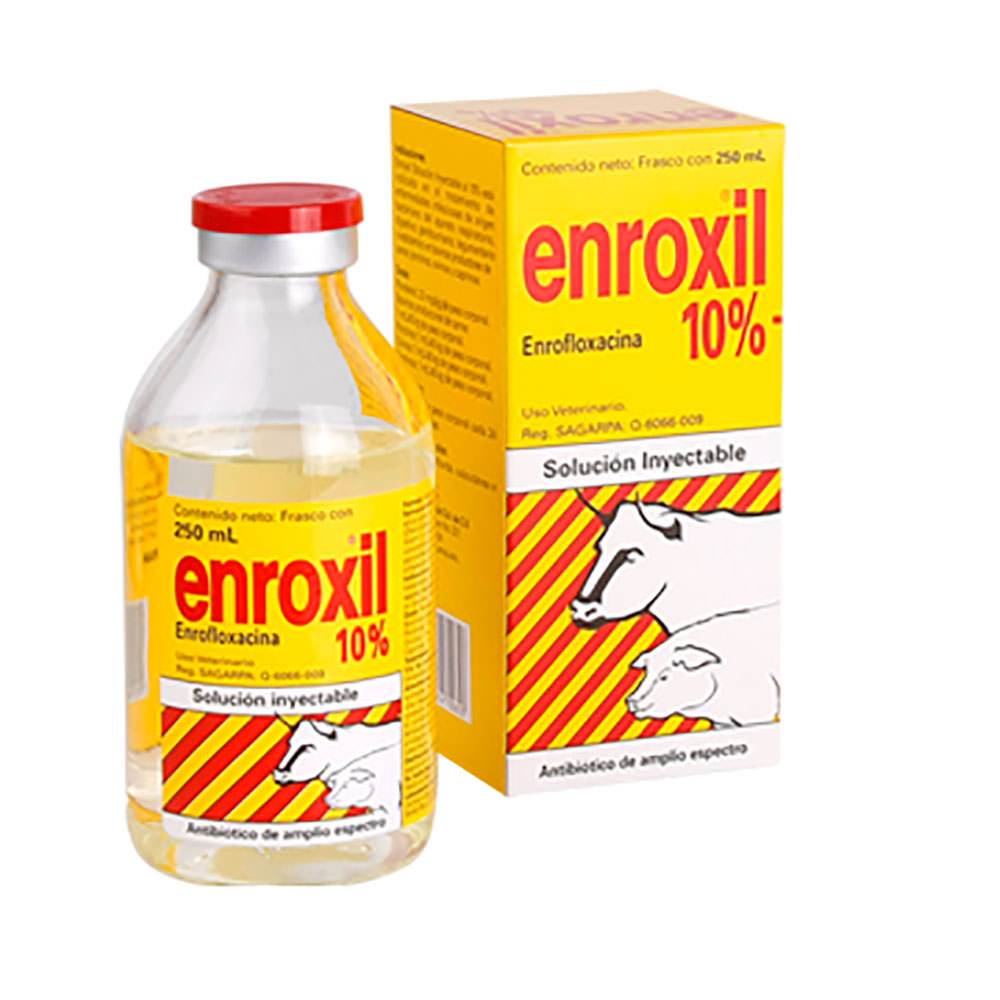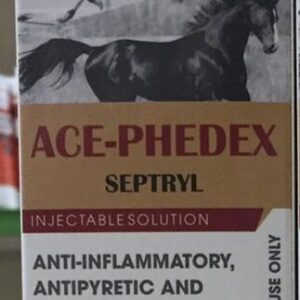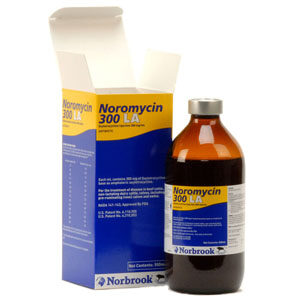Enroxil
Precautions:
Juvenile animals: Avoid use in young animals (particularly puppies and kittens) due to the risk of cartilage damage and developmental issues.
Pregnancy and lactation: The safety of enrofloxacin during pregnancy or lactation is not fully established, so it should be used with caution in these animals.
Drug interactions: Enrofloxacin should not be used concurrently with certain medications like theophylline or non-steroidal anti-inflammatory drugs (NSAIDs) as it can increase their toxicity. Enroxil
Withdrawal Period:
For food-producing animals, it is important to follow the withdrawal period before slaughter or milk production to ensure there are no antibiotic residues in the meat or milk:
Cattle: The meat withdrawal period is typically around 14–28 days, depending on local regulations.
Pigs: The withdrawal period for meat is around 14 days.
Poultry: The withdrawal period for poultry meat is around 7–10 days. It is not recommended for use in birds laying eggs for human consumption.
Resistance Concerns:
As with all antibiotics, there is a risk of bacterial resistance if Enroxil is overused or misused. Always follow the prescribed treatment duration and dose to avoid the development of resistant bacterial strains.
Contraindications:
Known allergy: Avoid use in animals allergic to fluoroquinolones or enrofloxacin.
Young, growing animals: Due to the risk of cartilage damage, it should not be used in puppies younger than 12 months (or 18 months for large breeds).
Seizure-prone animals: Use with caution in animals with a history of seizures or neurological disorders.
Enroxil is a highly effective and versatile antibiotic used in veterinary medicine to treat a range of bacterial infections in livestock, poultry, and companion animals. Its broad-spectrum activity, rapid action, and multiple formulations make it a valuable tool in managing infections. However, it is crucial to use it under veterinary guidance to prevent side effects and minimize the risk of antibiotic resistance.
Enroxil for chicken
Enroxil is a veterinary antimicrobial product that contains enrofloxacin, a fluoroquinolone antibiotic widely used to treat bacterial infections in animals. It is effective against both Gram-positive and Gram-negative bacteria and is commonly used in various species, including livestock, poultry, and companion animals such as dogs and cats.
Key Information about Enroxil:
Active Ingredient:
Enrofloxacin: This is a synthetic fluoroquinolone that inhibits bacterial DNA gyrase and topoisomerase IV, enzymes essential for bacterial DNA replication and cell division. This causes bacterial cell death.
Uses/Indications:
Enroxil is used to treat a variety of infections in different animal species:
Cattle: For respiratory infections, such as bovine respiratory disease (BRD), and infections caused by Pasteurella multocida, Mannheimia haemolytica, and Mycoplasma bovis.
Pigs: For respiratory infections caused by Actinobacillus pleuropneumoniae, Pasteurella multocida, and other susceptible bacteria.
Dogs and Cats: To treat skin infections, urinary tract infections, gastrointestinal infections, and respiratory tract infections.
Poultry: To treat bacterial infections like colibacillosis (caused by Escherichia coli) and Mycoplasma infections.
Formulations:
Enroxil Tablets: Often used for treating dogs and cats.
Enroxil Injectable Solution: Used for livestock such as cattle and pigs.
Enroxil Oral Solution: Available for use in poultry and other species for mass medication via drinking water.
Dosage and Administration:
Dosage varies depending on the animal species and type of infection. It’s important to follow the veterinarian’s recommendations:
Cattle: The typical dosage is 2.5 mg/kg of body weight, administered via subcutaneous or intramuscular injection, once daily for 3–5 days.
Pigs: 2.5 mg/kg of body weight via injection for 3–5 days. Enroxil
Poultry: Administered in drinking water at concentrations typically around 10 mg/liter for 3–5 days.
Dogs and Cats: 5–10 mg/kg of body weight per day for 5–10 days, depending on the severity of the infection.
Note: Always consult with a veterinarian for the correct dosage and duration of treatment.
Advantages:
Broad-spectrum: Enroxil works against a wide range of bacteria, making it versatile for various infections.
Rapid absorption: It is quickly absorbed into the bloodstream, leading to fast therapeutic effects.
Available in multiple forms: Adaptable for different animals and conditions, including oral, injectable, and water-based forms.
Potential Side Effects:
Gastrointestinal issues: Vomiting, diarrhea, or loss of appetite, especially in small animals like dogs and cats.
Cartilage damage: Enrofloxacin can affect joint cartilage, particularly in young, growing animals (puppies and kittens), leading to lameness or joint issues.
Central nervous system (CNS) effects: In rare cases, especially in animals with pre-existing neurological conditions, enrofloxacin may cause seizures.
Photosensitivity: Prolonged exposure to sunlight may cause skin reactions in some animals.




Reviews
There are no reviews yet.